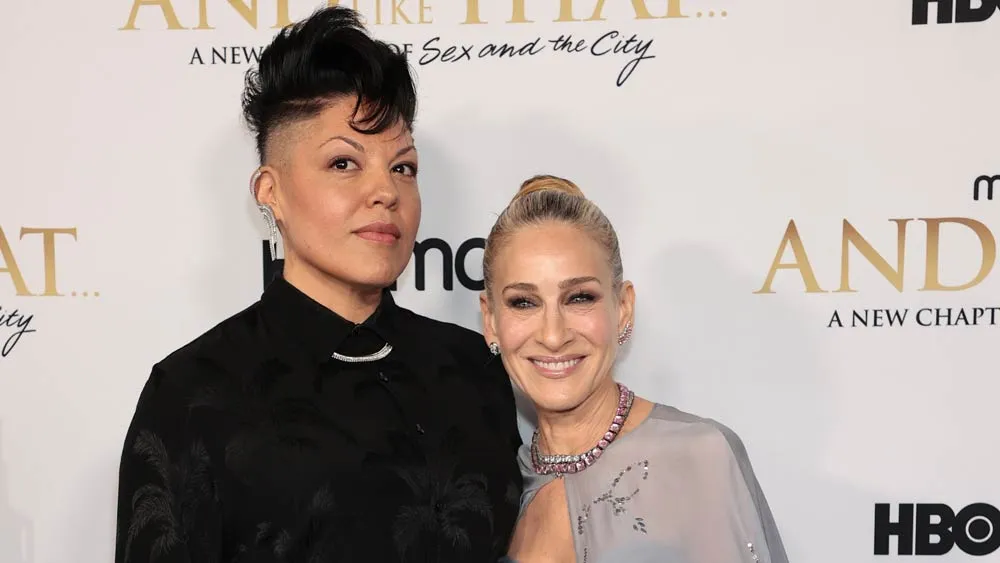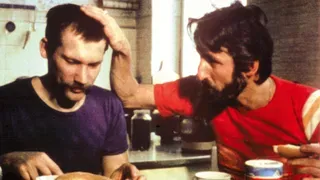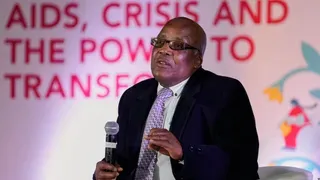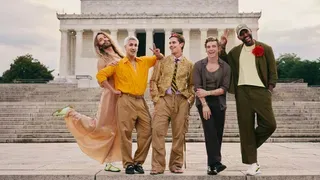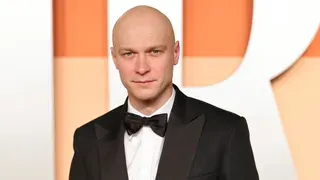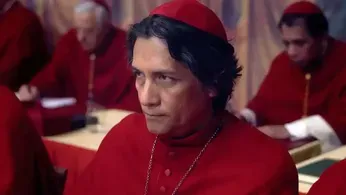
Apr 24
Could 'Conclave's' Surprise Ending Really Happen?
READ TIME: 4 MIN.
"Conclave," the Vatican-based thriller about the choosing of a new Pope, hit the streaming service Amazon Prime Video on the day following the death of Pope Francis. According to the New York Times, on Monday Edward Berger's Oscar-winning film (Best Adapted Screenplay) had 6.9 million minutes watched compared to 966,000 the previous Monday. On Tuesday, when the film went from pay-for-view to free-to-watch for Prime subscribers, the numbers of minutes watched jumped to 18.3 million, compared with 574,000 the previous Tuesday. (Editor's note: The number of minutes watched metric is how the tracking service Luminate calculates viewership. To arrive at the number of viewers, the length of the film (about 120 minutes) is divided into the number of viewers. This calculates for Monday's viewership to have been 115,000; on Tuesday it was 305,000 viewers.)
Based on Robert Patterson's best-selling novel, "Conclave" follows the political maneuverings of a group of papal candidates in the closed off proceedings that take place in the Sistine Chapel following the death of the Pope.
"The papal election process depicted in "Conclave" is fairly accurate, according to experts," writes the Times. "The film's depictions of different ritual acts, including how cardinals count votes by reading paper ballots aloud, weaving them along a single thread and then burning them, are 'more or less correct,' said Piotr H. Kosicki, an associate professor of history at the University of Maryland."
Every page-turning revelation of Patterson's book is brought to the screen in Berger's compelling adaptation, which isn't so much a 'who-dunnit' as a 'who will-it-be?' But what of the whopper reveal dropped at the end?
Spoiler Alert: Out of deference to the film, that turn of events has largely not been reported on; but given how it addresses the issue of the Church's policies on gender, it is well worth examining. In both novel and film, the dark horse candidacy of a Latin American cardinal takes hold with Cardinal Benitez (Carlos Diehz) finally being named Pope. It turns out that isn't the only big reveal – in the film's final scene, Benitez calmly tells Cardinal-Dean Lawrence (Ralph Feinnes) that he was born intersex, but was raised as a man.
When "Conclave" was released last fall, GQ interviewed papal expert David Gibson, Director of the Center on Religion and Culture at Fordham University, about the film, which he found better than the novel, and that ending, which he feels was "absurd" and dominated the novel at the sake of the characterizations. "In the film, the human dynamics of these holy and flawed characters really came out, and the ending was almost superfluous."
But, he adds, "conclaves are, by their nature, absurd. I mean, 120 – more or less – scarlet-robed guys go into the Sistine Chapel and are locked away until one of them emerges as the pope, after secret ballots and Latin oaths and white smoke funnelled through a farmhouse chimney. There's a reason why novelists and filmmakers love 'Pope Fiction' as I call it – it has built-in drama and is really a tribute not only to the fascination the papacy attracts but also its power."
And believes that "an intersex person could be elected pope, just as there have undoubtedly been gay men elected pope," but finds it a problem when used as a plot device. "It's not clear what it would mean though, and I think that's a real weakness in the film. Robert Harris, it seems, wanted to make a statement about gender and the Catholic Church, which is fine. But it is less a statement than a Rubik's Cube. Does the new pope identify as male or female? Does having characteristics of both sexes mean that they can't be ordained, or become pope? Would such an election be invalid? These become angels-dancing-on-pinhead discussions that distract from the more important issues."
He cites an incident he attended last year when Pope Francis met with a group of trans and intersex Catholics as being more meaningful. "It was a very powerful meeting. The pope's affirmation of them as created by God with inherent dignity was extraordinarily moving. One of them, Nicole Santamaria, an intersex woman from El Salvador, wrote about her experience and to me, it's a testimony more powerful than 'Conclave's' surprise ending."
In sharing her moving story, Santamaria writes: "Intersex or hermaphrodite people are made most invisible, even within the LGBT community. We are born with a physical condition that does not fit into socio-cultural parameters. So our bodies are mutilated without consent and our identities are forced to fit into the masculine or feminine. We are not that rare either; we are as common as red hair people. To this date, there are known 80+ intersex traits.
"I work with the Trans community because, although it is not my entire experience, I can understand the suffering of expressing your identity and of being excluded, violated, and even exterminated, since I was also forced to be raised in a gender that wasn't my biological one."
The Times also reports that "Netflix's 'The Two Popes,' a biographical drama about Pope Francis and his predecessor, Pope Benedict XVI, has also seen a growing audience, with Luminate reporting a 417 percent increase in viewership. According to Luminate, the 2019 film had 290,000 minutes watched on Sunday compared with 1.5 million minutes watched on Monday."
